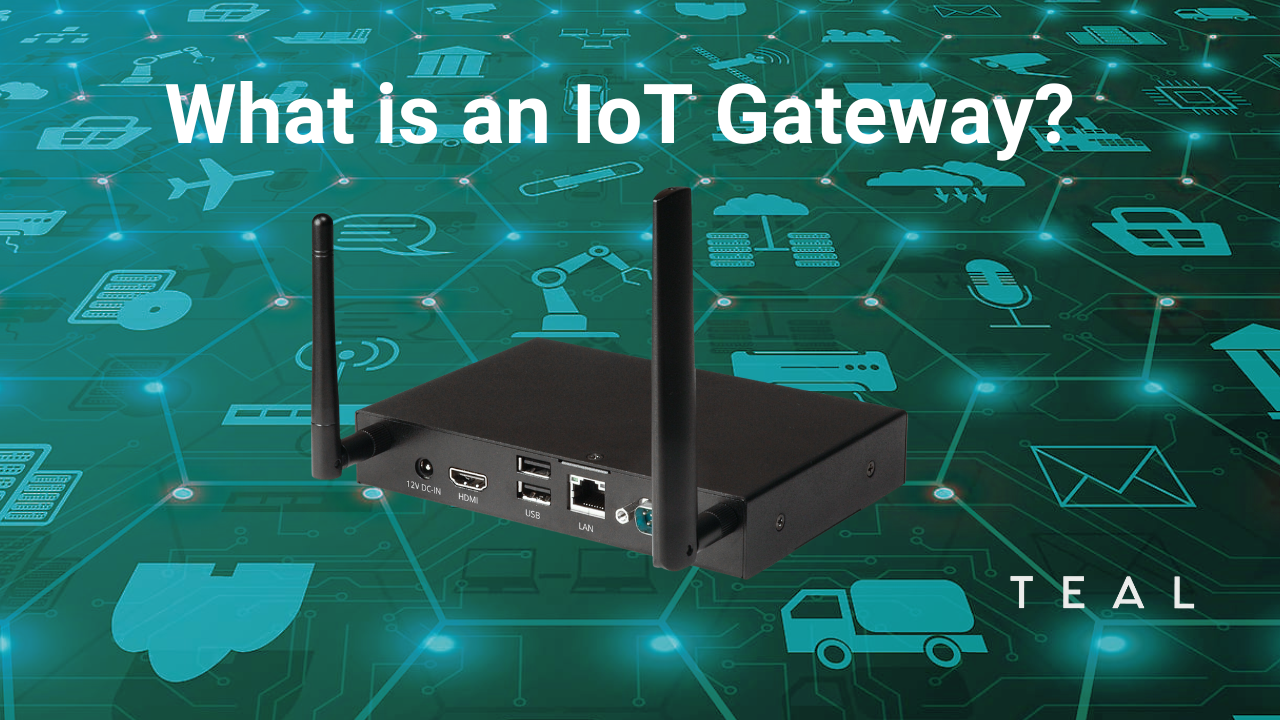Understanding IoT Gateways and the Role of eSIM in Enabling Reliable Connectivity

The Lowdown on IoT Gateways: A Key Component of IoT Networks
With the rapid growth of the Internet of Things (IoT), the need for reliable and secure connectivity has become essential. Without any doubt, internet of things (IoT) technology plays a vital role in our day-to-day lives, enabling everything from smart homes to intelligent manufacturing and energy management systems. Connected devices provide useful and insightful data that allows businesses to make informed decisions and respond quickly to changing market conditions. However, managing a large number of connected devices can be challenging. That is why eSIM technology has emerged as a game-changer in the IoT space – providing fast, reliable, and secure deployment for gateways and devices. In this blog post, we will discuss how eSIM technology is simplifying the deployment of IoT devices and providing more reliable connectivity for IoT gateways across various industries. But what are IoT gateways exactly, and what industries utilize them? Read on to get the lowdown on IoT gateways and explore various industries that rely on this crucial component of IoT networks.
What is an IoT Gateway?
IoT gateways are critical components of any IoT deployment. They serve as the bridge between IoT devices and the cloud, where data is processed, analyzed and translated into actionable insights. Gateways can communicate with sensors and devices over varying connectivity types including WiFi and cellular. Essentially, IoT gateways allow devices to communicate with one another while also providing a secure connection to the cloud. Connectivity is critical for many IoT applications since more complex devices require a stable and reliable network connection. By using an IoT gateway, reliability is achieved, and data transmission is optimized. This is because gateways can reduce latency in time-critical applications by performing processing on the gateway itself rather than in the cloud.
IoT gateways play a central role in collecting data, transmitting it to a central server for analysis and storage, as well as interpreting the results. Because WiFi can often be unreliable, many companies are turning to cellular connectivity to ensure the maximum uptime for their IoT deployments. To that end, many leading businesses are adopting eSIM technology which enables IoT devices to be deployed quickly, no matter the location, with reliable and secure connectivity onto any data network worldwide. eSIM technology provides a reliable and secure connection that can work across multiple locations. Because eSIMs can be programmed over-the-air (OTA), this technology removes the need for site surveys and SIM swaps otherwise known as “truck rolls”.
What Are the Benefits of Using eSIM Technology to Connect IoT Devices?
- Cost-effective: eSIM technology is cost-effective as it eliminates the need for manual SIM swaps, roaming charges, and physical SIM management. Programmable eSIM technology reduces the complexity of connectivity for IoT devices making it easy to connect gateways and devices onto any global data network.
- Global Coverage: With true eSIM technology, cellular coverage is available anywhere in the world, on demand. eSIM provides a single, programmable SIM card that can work across multiple countries and devices can dynamically switch between networks at the click of a button.
- Low Power: Many devices require low power, and gateways reduce the number of sensors and devices connected to the internet because these devices are only connected to the gateway, making it ideal for battery-powered devices.
- Enhanced Security: Gateways themselves can be targets and also the first line of defense for many IoT deployments. This is why security must be a priority for any business deploying gateways. eSIM provides better security for IoT deployments and it’s important to ensure that any eSIM technology your business adopts is GSMA Certified, ensuring the highest level of security for your enterprise.
IoT gateways have found their application in various industries such as healthcare, energy, transportation, agriculture, mining and manufacturing. Machine-to-machine (M2M) communications require reliable and secure connectivity to transfer data between sensors, gateways, and cloud servers. Below are some industrial examples of the use cases that leverage cellular enabled gateways connected by eSIM:
In the healthcare industry, IoT gateways can be used to create a connected healthcare ecosystem that enables patients to share data with care providers. These data sharing capabilities help to streamline workflows and reduce manual interventions that can result in errors.
In the retail industry, IoT gateways can be used to create an integrated supply chain network. Sensors in warehouses can communicate with IoT gateways that then send the data to the cloud for analysis, providing real-time notifications of inventory levels. These insights allow retailers to manage inventory more efficiently and predict demand, which has a significant impact on profits.
Another industry that benefits significantly from IoT gateways is the manufacturing industry. IoT gateways can be used for predictive maintenance, allowing manufacturers to detect potential equipment malfunctions before they occur. By using IoT gateways to connect to sensors, data can be monitored and analyzed in real-time, facilitating proactive maintenance and reducing operational downtime.
The agriculture industry is another sector where IoT gateways have made inroads. IoT gateways are being used to connect devices, such as soil moisture sensors, weather stations, and cameras, to provide real-time crop monitoring. This connection enables farmers to make data-driven decisions that optimize plant health, reduce waste and save on resources like water and fertilizer.
IoT Gateways Optimize Data Utilization for Improved Operations and Profitability
IoT gateways are a critical component of many IoT deployments and serve as a bridge between devices and the cloud. Various industries, including healthcare, retail, manufacturing, and agriculture, are relying on IoT gateways to power their network infrastructure and optimize data utilization for improved operations and profitability. With the increasing use of IoT technology, the demand for IoT gateways will continue to rise, and it is important for companies to ensure that they remain always connected to the best global cellular networks.
Don’t make the mistake of choosing the wrong eSIM solution for your business. If you’re evaluating eSIM technology, be sure to download the GSMA’s free eSIM Buyer’s Guide for Enterprise and get the information your business needs to select the right platform to fit your needs. Download for free here!
If you’re interested in finding out if eSIM is right for your business, be sure to contact us to set a time to meet with a Teal expert.
Recent Posts
TEAL Announces its Attendance at Automate, North America’s Largest Automation Tradeshow
Teal Communications Staff2024-04-29T20:45:44+00:00
Revolutionizing Fleet Management with AI-Driven Telematics Solutions
Teal Communications Staff2024-04-26T21:30:35+00:00
How Reliable Connectivity Is Keeping Our Planet Clean and Green
Teal Communications Staff2024-04-24T15:14:27+00:00




